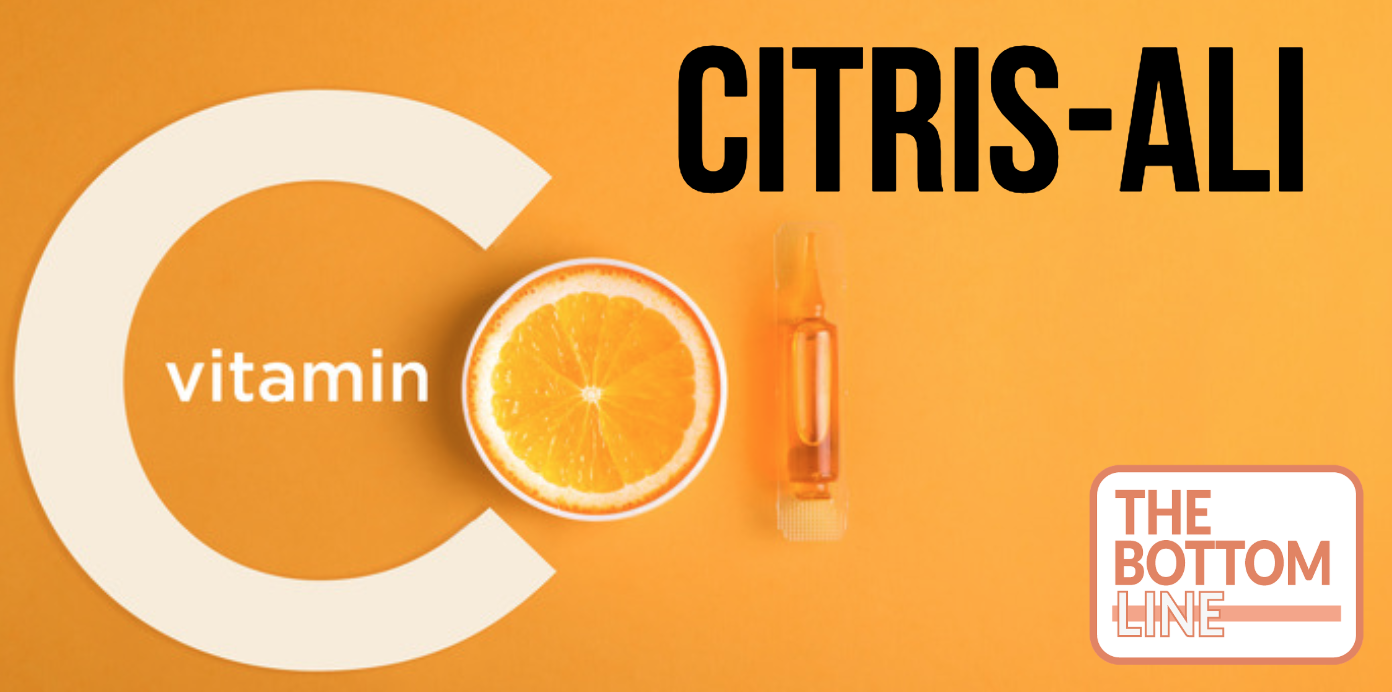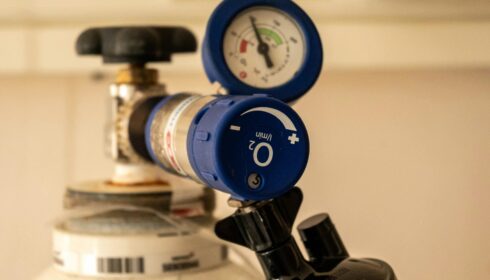Vitamin C Sepsis

Effect of Vitamin C Infusion on Organ Failure and Biomarkers of Inflammation and Vascular Injury in Patients With Sepsis and Severe Acute Respiratory Failure: The CITRIS-ALI Randomized Clinical Trial
Fowler AA. JAMA; 2019;322(13):1261-1270
Clinical Question
- In patients with sepsis and acute respiratory distress syndrome, can intravenous administration of vitamin C, compared to placebo, reduce organ failure scores and biomarkers of inflammation and vascular injury?
Background
- Acute Respiratory Distress Syndrome (ARDS) is commonly associated with sepsis, and continues to have a high mortality (up to 45% in LUNG-SAFE)
- Animal studies have suggested a role for vitamin C for attenuating the inflammatory response and vascular lung injury
- A preliminary study in humans in 2014 showed a significant reduction in inflammatory markers and Sequential Organ Failure Assessment (SOFA) scores- leading to this phase 2 trial
- In the interim, while this trial was being conducted, a retrospective observational study was published in CHEST
- This paper was based on the preliminary human study above, and showed a significant mortality benefit using a retrospective before and after design
- Significant debate over the role of vitamin C in sepsis has resulted ever since
Design
- Randomised, double blinded, placebo-controlled, multi centre study
- 1:1 computer generated randomisation
- Blinding maintained by pharmacy at each institution- they prepared identical amber-coloured bags of vitamin C and placebo
- Randomisation within 24 hours
- Based on a power of 80% and 2 sided alpha of 0.05, multiple computer simulations were run to determine a sample size of 170 (85 per group)
Setting
- 7 ICUs in the United States
- Sept 2014 – November 2017
Population
- Inclusion:
- Mechanically ventilated
- PaO2/FiO2 ratio of <300 mmHg
- Bilateral opacities on chest X ray
- Recruitment within one week of clinical insult
- New/worsening respiratory symptoms without evidence of raised left atrial pressure
- Suspected or proven infection
- Positive for 2 out of 4 of Systemic inflammatory Response criteria
- Exclusion:
- Vitamin C allergy
- Age <18
- Non-English speaking or ward of state
- Unable to gain informed consent
- >48 hours since achieving ARDS criteria
- No patient surrogate or physician committed to full support
- Home ventilation
- Home oxygen >2L/min
- Interstitial lung disease
- Diffuse alveolar haemorrhage
- Diabetic ketoacidosis
- Active kidney stone
- 1267 patients screened, 170 patients randomised, 167 included in primary analysis
- Baseline characteristics broadly similar between groups. Notable differences:
- More black people in placebo group (23% vs 15%)
- More respiratory sepsis in intervention group (82% vs 70%)
- More abdominal sepsis in placebo group (16% vs 7%)
- More acute kidney injury in placebo group (31% vs 25%)
- Worse P/F ratio in intervention group (189 vs 214)
Intervention
- 50mg/kg vitamin C (dissolved in 5% dextrose) every 6 hours for 96 hours
Control
- 5% Dextrose only
Management common to both groups
- Both groups ventilated according to ARDSNet protocol
- Fluid managed conservatively according to FACTT Lite protocol, and continued until unassisted breathing or study day 7
Outcome
- Primary outcome: Difference in mean modified SOFA score (Modified by removing bilirubin), CRP and thrombomodulin at 168 hours
- No significant difference seen in any of the primary outcomes:
- SOFA Score differences: 3 point reduction (intervention) vs 3.5 point reduction (control)- 95% CI -1.23 to 1.03, P= 0.86)
- CRP: 54 vs 46.1 micrograms/ml (95% CI -8.23 to 24.1, P= 0.33)
- Thrombomodulin 14.5 vs 13.8 ng/ml (95% CI -2.8 to 4.2, P= 0.70)
- Secondary outcome: 46 prespecified secondary outcomes- out of these, 3 were positive:
- 28 day mortality (29.8% vs 46.3%, 95% CI 2% to 31%, P= 0.03)
- ICU free days to day 28 (Median 11 vs 0 days, P= 0.03)
- Hospital free days to day 60 ( Median 22 vs 0 days, P= 0.04)
Authors’ Conclusions
- In this preliminary study of patients with sepsis and ARDS, a 96 hour infusion of vitamin C compared with placebo did not significantly improve organ dysfunction scores or alter markers of inflammation and vascular injury
Strengths
- Well randomised and blinded
- Registered on clinicaltrials.gov
- Power calculation based on previous data
Weaknesses
- Significant numbers of patients were excluded from enrolment, resulting in the trial taking 3 years to complete
- The most common exclusion reason was being enrolled >48hrs post achieving ARDS criteria- this is either a problem with screening, or a reflection of the difficulty in diagnosing ARDS
- The primary outcome measure, while based on the previous phase 1 trial, is not one of interest to patients or treating clinicians
- Apparently this was decided upon by the NIHR, and was not the first choice of the research team (this is based on personal communication with AA Fowler)
- Patients who died before hour 96 were not included in the primary analysis, essentially giving them an mSOFA score of zero
- If more patients died in the placebo group, their overall mSOFA scores would be lowered as a result
- This would have nullified any difference in the primary outcome
The Bottom Line
- This randomised control trial of vitamin C in sepsis-induced ARDS showed no difference in the primary outcome of reduction in SOFA or biomarkers
- The secondary outcome of mortality is purely hypothesis forming
- Vitamin C cannot be recommended for use on the basis of this trial
- I am not currently using Vitamin C routinely in my septic shock or ARDS patients, and will await the results of upcoming large RCTs on its use (VICTAS, VITAMINS)
External Links
- [article]Effect of Vitamin C infusion on organ failure and Biomarkers of inflammation and vascular injury in patients with sepsis and severe acute respiratory failure.
- [Editorial] Is high dose Vitamin C beneficial for patients with sepsis?
- [further reading] Pulmcrit. CITRIS ALI: Can a secondary outcome stage a coup d’etat?
- [further reading]EmNerd: The Case of the Sour Remedy.
- [Further reading]Data methods. CITRIS ALI Results and discussion thread (A hardcore look into the statistics involved)
- [Video] CITRIS ALI presented at ESICM LIVES Berlin
Metadata
Summary author: Segun Olusanya
Summary date: 21/10/19
Peer-review editor: Fraser Magee



